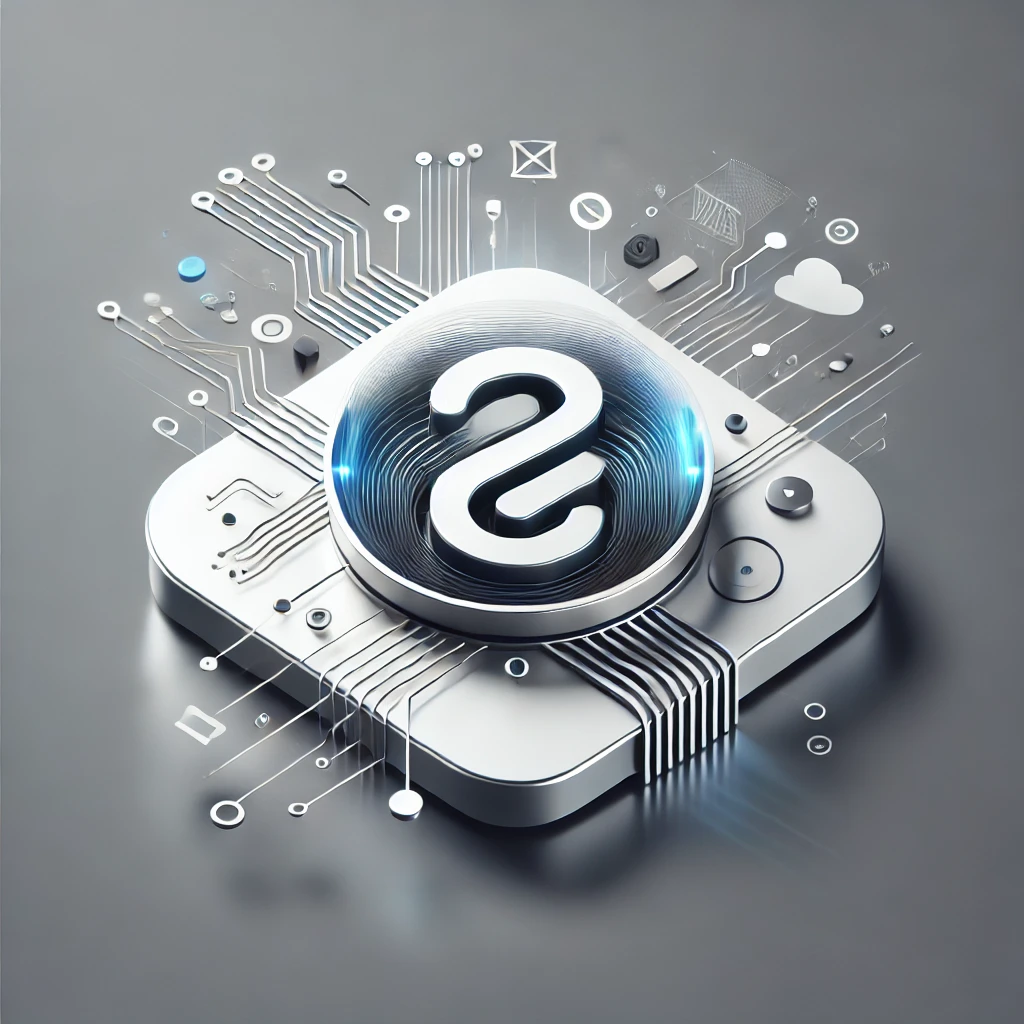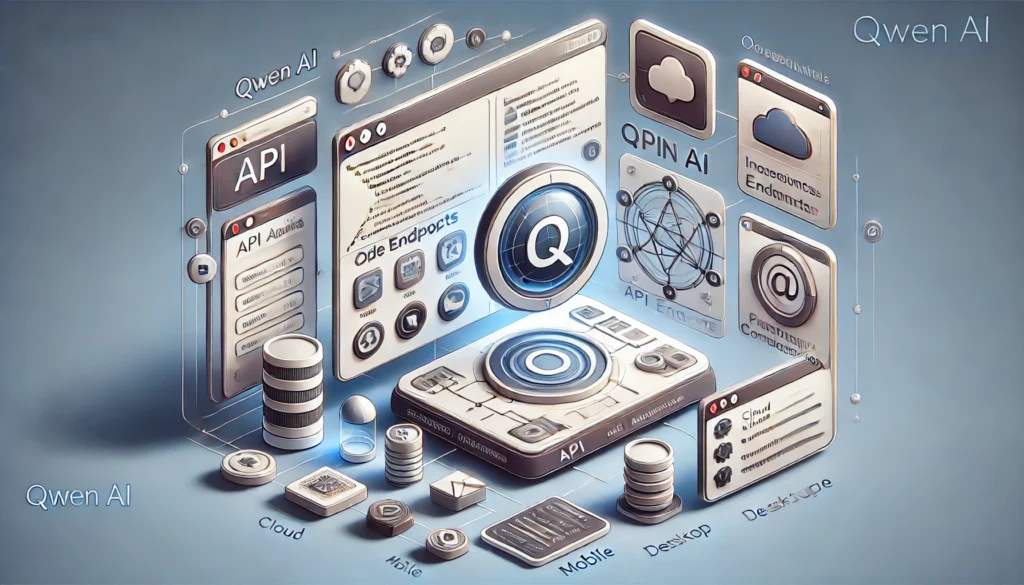Exploring Qwen AI: A Comprehensive Guide and Its Comparison with ChatGPT and Deepseek
In the rapidly evolving world of AI, Qwen AI has emerged as a powerful tool for businesses and developers alike. As industries increasingly rely on artificial intelligence to streamline operations, enhance productivity, and drive innovation, Qwen AI stands out as a versatile and cutting-edge solution. Developed by Alibaba Cloud, this large language model is designed to cater to a wide range of applications—from generating human-like text and crafting engaging content to performing complex tasks like coding, debugging, and real-time data analysis. What sets Qwen AI apart is its ability to seamlessly integrate into various workflows, making it an invaluable asset for organizations looking to harness the full potential of AI. Whether you’re a developer seeking to automate tedious processes or a business aiming to deliver personalized customer experiences, Qwen AI offers the tools you need to thrive in today’s competitive landscape.
https://chat.qwenlm.ai/
What is Qwen AI?
So, what exactly is Qwen AI, and why is it generating so much buzz in the tech community? At its core, Qwen AI is a state-of-the-art large language model developed by Alibaba Cloud, one of the leading players in the global cloud computing market. Designed to understand and generate natural language with remarkable accuracy, Qwen AI serves as a multifunctional assistant capable of tackling diverse tasks. From writing essays, emails, and scripts to creating images, videos, and even running executable code, Qwen AI exemplifies the next generation of AI-powered tools.
The background of Qwen AI traces back to Alibaba Cloud’s commitment to advancing artificial intelligence technology. Leveraging decades of research and development, Alibaba Cloud has fine-tuned Qwen AI using an extensive dataset comprising 20 trillion tokens. This massive training corpus, combined with advanced reinforcement learning techniques, enables Qwen AI to deliver highly contextualized and precise outputs. Unlike many other models that excel in specific niches, Qwen AI is built for versatility, catering to both technical professionals and non-technical users alike. Its robust architecture positions it as a formidable competitor to models like ChatGPT and Deepseek, offering unique features such as real-time web searches, document analysis, and multi-modal capabilities.

Key Features of Qwen AI
Qwen AI is packed with features that make it a standout in the crowded field of AI models. One of its most notable strengths is multilingual support and advanced natural language processing (NLP). Whether you’re drafting documents in English, creating content in Chinese, or translating text into multiple languages, Qwen AI delivers accurate and contextually appropriate results. Its NLP capabilities ensure that even complex queries are understood and addressed with precision.
Another key feature is its scalability for various use cases. From automating customer support through chatbots to generating high-quality content for marketing campaigns, Qwen AI adapts effortlessly to meet diverse needs. Businesses can leverage its power for everything from streamlining internal workflows to enhancing user experiences on digital platforms.
Additionally, Qwen AI offers seamless integration capabilities with cloud-based platforms. Whether you’re using Alibaba Cloud services or third-party tools, Qwen AI can be easily incorporated into your existing infrastructure. This flexibility makes it an ideal choice for organizations looking to future-proof their operations without overhauling their current systems.
How to Use Qwen AI
Ready to harness the power of Qwen AI? Here’s a step-by-step guide to get you started:
Step 1: Accessing Qwen AI through Alibaba Cloud or APIs
The first step is gaining access to Qwen AI. You can do this directly via Alibaba Cloud, where the model is hosted, or by integrating it into your projects using APIs. If you’re new to Alibaba Cloud, simply create an account, navigate to the Qwen AI section, and choose a subscription plan that suits your needs. For developers, the API option provides greater flexibility, allowing you to embed Qwen AI’s capabilities into custom applications or workflows.
Step 2: Setting Up Your Environment and Integrating It Into Workflows
Once you’ve gained access, the next step is setting up your environment. Depending on your use case, this might involve configuring API keys, installing SDKs, or connecting Qwen AI to your preferred platforms (e.g., CRM systems, content management tools, or data analytics dashboards). Alibaba Cloud provides comprehensive documentation and tutorials to help you integrate Qwen AI seamlessly into your existing processes.
Step 3: Generating Text, Automating Tasks, or Building Custom Applications
With everything set up, you’re ready to put Qwen AI to work! Use it to generate polished text for blogs, reports, or social media posts. Need to automate repetitive tasks? Let Qwen handle customer inquiries, schedule appointments, or analyze large datasets. For more advanced users, Qwen AI can serve as the backbone for building custom applications—such as intelligent assistants, recommendation engines, or real-time translation tools. The possibilities are virtually limitless.

By following these steps, you’ll unlock the full potential of Qwen AI and take your projects to the next level.
Practical Use Cases
Qwen AI’s versatility makes it a valuable asset across a wide range of industries and applications. For content creators, Qwen AI can generate engaging blogs, social media posts, and marketing copy, saving time while maintaining high quality. Businesses looking to enhance customer experiences can deploy Qwen-powered chatbots to automate responses, resolve queries, and provide 24/7 support. Beyond communication, Qwen AI excels in data analysis and decision-making processes, helping organizations extract actionable insights from complex datasets. Whether you’re crafting personalized emails, automating workflows, or building predictive models, Qwen AI adapts to meet your needs with precision and efficiency.
Qwen AI vs ChatGPT vs Deepseek: A Comparative Analysis
When evaluating AI models, it’s essential to compare their features, strengths, and limitations. Below is a detailed comparison of Qwen AI, ChatGPT, and Deepseek, focusing on performance, pricing, and user experience.
Performance and Capabilities (H3)
The foundation of any AI model lies in its training data, language support, and accuracy. Qwen AI stands out with its massive training dataset of 20 trillion tokens, enabling it to deliver highly contextualized outputs. Its multilingual capabilities are particularly impressive, supporting over 100 languages and making it an ideal choice for global enterprises.
ChatGPT, developed by OpenAI, also boasts robust natural language processing but is primarily optimized for English. While it performs exceptionally well in creative writing and conversational tasks, its multilingual support is more limited compared to Qwen AI.
Deepseek, another contender, focuses on technical use cases like coding and debugging. It excels in generating and executing code but falls short in broader applications such as content creation or customer service automation.
| Feature | Qwen AI | ChatGPT | Deepseek |
|---|---|---|---|
| Training Data | 20 trillion tokens | Extensive but undisclosed | Focused on coding datasets |
| Language Support | Over 100 languages | Primarily English | Limited multilingual support |
| Strengths | Multilingual, versatile, scalable | Creative writing, conversational | Code generation, debugging |
| Weaknesses | Requires API integration | Limited non-English capabilities | Narrow application scope |
| Pricing | Flexible plans, free tier available | Subscription-based, no free tier | Enterprise-focused, higher cost |
Pricing and Accessibility (H3)
Cost-effectiveness and accessibility are critical factors when choosing an AI model. Qwen AI offers a range of options, including a free tier for beginners and flexible subscription plans for businesses. This makes it accessible to startups and enterprises alike.
ChatGPT, on the other hand, operates on a subscription model through OpenAI’s Plus plan, which can be expensive for smaller teams. There’s no free tier, limiting access for casual users.
Deepseek targets enterprise clients, often requiring significant investment. While its specialized capabilities justify the cost for tech-heavy projects, it may not be practical for general-purpose applications.
User Experience and Community Support (H3)
User experience plays a vital role in adoption. Qwen AI provides intuitive APIs and comprehensive documentation, ensuring smooth integration into workflows. Alibaba Cloud’s extensive resources and active developer community further enhance usability.
ChatGPT benefits from OpenAI’s strong brand reputation and a large user base, offering ample tutorials and third-party tools. However, its interface is less customizable compared to Qwen AI.
Deepseek lags behind in terms of community engagement and ease of use. Its niche focus means fewer resources are available for troubleshooting or customization.
Conclusion
In the rapidly evolving landscape of artificial intelligence, Qwen AI has firmly established itself as a versatile and powerful tool for businesses and developers. With its robust multilingual support, advanced natural language processing, and scalability for diverse use cases—from content creation to customer service automation—Qwen AI sets a new standard for innovation. Its competitive edge over models like ChatGPT and Deepseek lies in its unparalleled versatility, cost-effectiveness, and ease of integration into cloud-based platforms. While ChatGPT excels in conversational tasks and Deepseek shines in coding, Qwen AI offers a comprehensive solution that caters to a broader range of applications.
Ready to explore the power of Qwen AI? Whether you’re looking to streamline workflows, enhance customer experiences, or drive data-driven decisions, Qwen AI is your ultimate ally. Start experimenting today and unlock the full potential of AI for your projects!
Frequently Asked Questions (FAQs)
1. What is Qwen AI?
Qwen AI is a state-of-the-art large language model developed by Alibaba Cloud. It is designed to understand and generate natural language with remarkable accuracy, serving as a multifunctional assistant capable of tasks such as writing essays, creating images, and running executable code. Qwen AI exemplifies the next generation of AI-powered tools.
2. How does Qwen AI compare to ChatGPT and DeepSeek?
While ChatGPT and DeepSeek are prominent AI models, Qwen AI distinguishes itself through its versatility and advanced features. Developed by Alibaba Cloud, Qwen AI offers unique capabilities such as real-time web searches, document analysis, and multi-modal functionalities, making it a formidable competitor in the AI landscape.
3. What are the key features of Qwen AI?
Qwen AI boasts several standout features, including:
- Multilingual Support and Advanced Natural Language Processing (NLP): It delivers accurate and contextually appropriate results across multiple languages.
- Scalability for Various Use Cases: From automating customer support to generating high-quality marketing content, Qwen AI adapts to diverse business needs.
- Seamless Integration with Cloud-Based Platforms: It can be easily incorporated into existing infrastructures, whether using Alibaba Cloud services or third-party tools.
These features make Qwen AI a versatile and powerful tool for organizations aiming to leverage AI technology.
4. How can businesses integrate Qwen AI into their operations?
Businesses can integrate Qwen AI into their operations by accessing it through Alibaba Cloud or via APIs. This allows for embedding Qwen AI’s capabilities into custom applications or workflows, enabling tasks such as automating customer support, enhancing content creation, and streamlining internal processes.
5. What sets Qwen AI apart from other AI models?
Qwen AI sets itself apart through its robust architecture and unique features, including real-time web searches, document analysis, and multi-modal capabilities. Its versatility caters to both technical professionals and non-technical users, making it a valuable asset for a wide range of applications.


